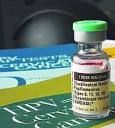Business Times – 26 Apr 2008
By MELISSA HENG
FOUR out of every five women in Singapore are being stalked by a potentially dangerous killer throughout their life – and more than half of them don’t have the faintest clue.
‘In the course of a lifetime, about 80 per cent of women here will have been infected by at least one type of the human papillomavirus (HPV),’ says Tay Sun Kuie, associate professor, and senior consultant in the obstetrical & gynaecological department at Singapore General Hospital.
There are more than 100 types of HPV. But two strains – HPV 16 and 18 – are particularly sinister as they are hugely responsible for causing cervical cancer, the second-most common cancer worldwide among women over the age of 15.
But here’s the really scary news. While doctors here have red-flagged HPV for years, a recent nationwide survey showed that up to 75 per cent of women have no idea what HPV is, let alone the damage it can do.
What’s more, of those who have heard of HPV, many do not realise how common the virus is, and the great majority feel they are unlikely to be infected.
This lack of understanding can serious implications, especially since cervical cancer has no symptoms to speak of. ‘It is a silent killer that causes at least two deaths every week,’ warns Prof Tay.
Results from the first large-scale survey on Singapore women’s knowledge of and attitudes towards the HPV showed a worrying lack of awareness about the common virus, which spreads through skin contact.
The study, which was endorsed by the Obstetrical & Gynaecological Society of Singapore and the Association of Women Doctors here, involved 1,000 females aged from 17 to over 50. The survey was conducted from December 2007 to January this year – and its results raise questions about what women are doing to protect themselves against cervical cancer.
Cervical cancer is one of the top five causes of cancer deaths among women in Singapore, with about 200 women here diagnosed with cervical cancer each year. The cancer begins in the cervix – the part of the uterus or womb that opens to the vagina – and can spread to other parts of the body if left untreated.
‘Cervical cancer is highly preventable because it has a long gestation period and a clearly defined pre-cancerous stage,’ says Prof Tay. But this is a bane – as well as a boon.
Because the disease has no warning signs, most women do not even know they are infected unless they go for periodic screenings.
Yet according to the survey, only 12 per cent of women aged between 17 and 26 have ever had a pap smear. Indeed, while they are already sexually active, almost a quarter of these young adults do not even know what a pap smear is.
‘In Singapore, at least 10 per cent of women prior to age of 16 have had sexual intercourse, and in fact, a significant number of them have more than one partner,’ says Prof Tay. ‘Given this scenario, ignorance about the pap smear is very worrying, because it is a very good diagnostic tool that will alert doctors to abnormalities in the cervix.’
But there is still hope. ‘There are now vaccines available that act against the more deadly types of HPV and give complete protection against HPV 16 and 18, which causes up to 70 per cent of all cervical cancers,’ he Prof Tay says.
The two vaccines now on the market are Gardasil, which was introduced here in 2006, and Cervarix, which made its debut a few months ago.
Both vaccines have to be given in three doses, spread over six months. Costing about $600, they have been approved for girls as young as nine.
‘The clinical trials were with women aged nine to 26, but even women who are in their 30s will benefit from the protection,’ says Prof Tay, adding that at present, neither vaccine is subsidised, even at public hospitals.
He urges women to look beyond dollars and cents – because life itself is at stake. ‘People buy hand phones and iPods for hundreds of dollars and they get out-dated after a year or so,’ he says. ‘An HPV vaccine lasts at least five years and it gives more than just entertainment value. To me, getting it makes a lot of sense.’
So ladies, the next time you visit the doctor, be good to yourself and ask for a shot. It could very well save your life.

